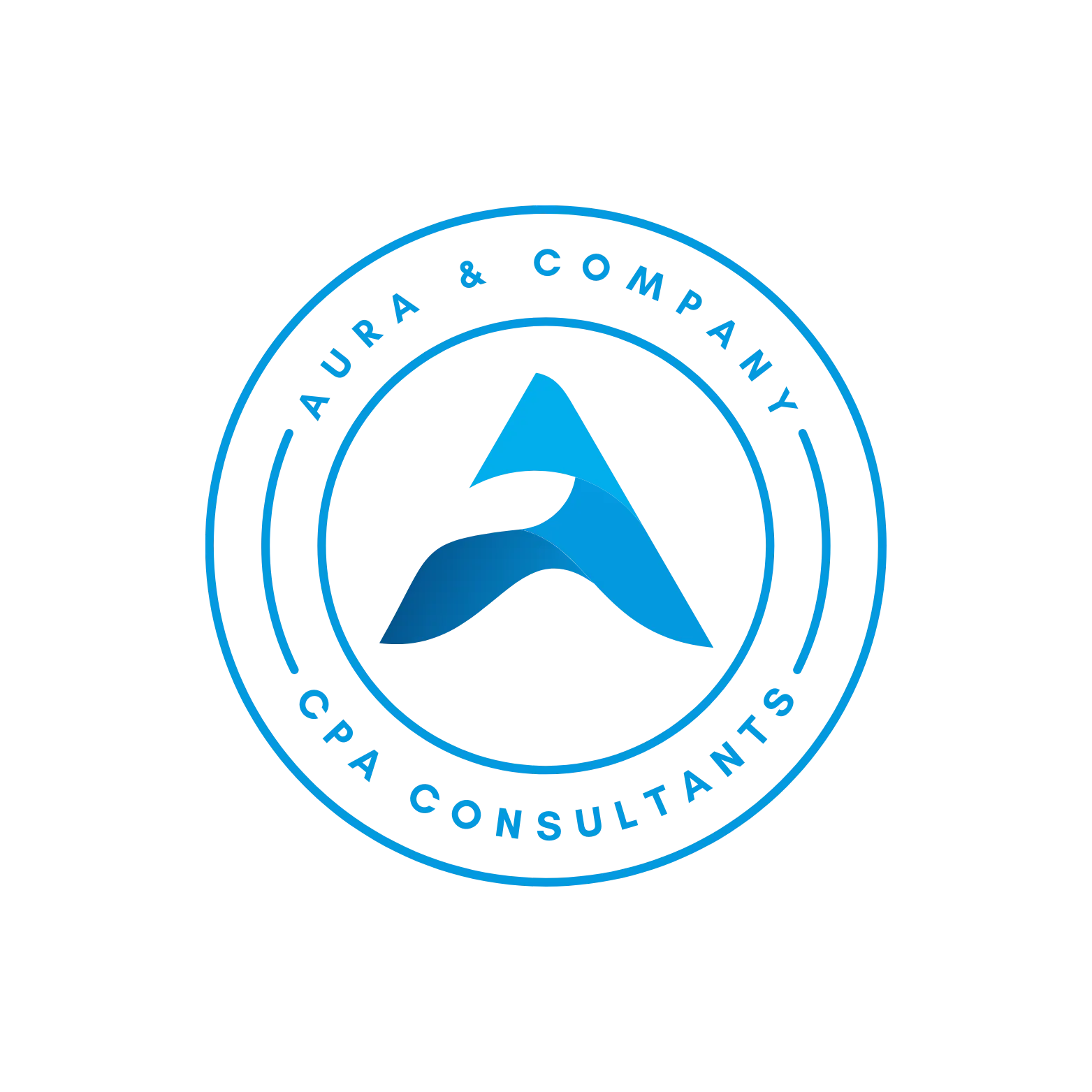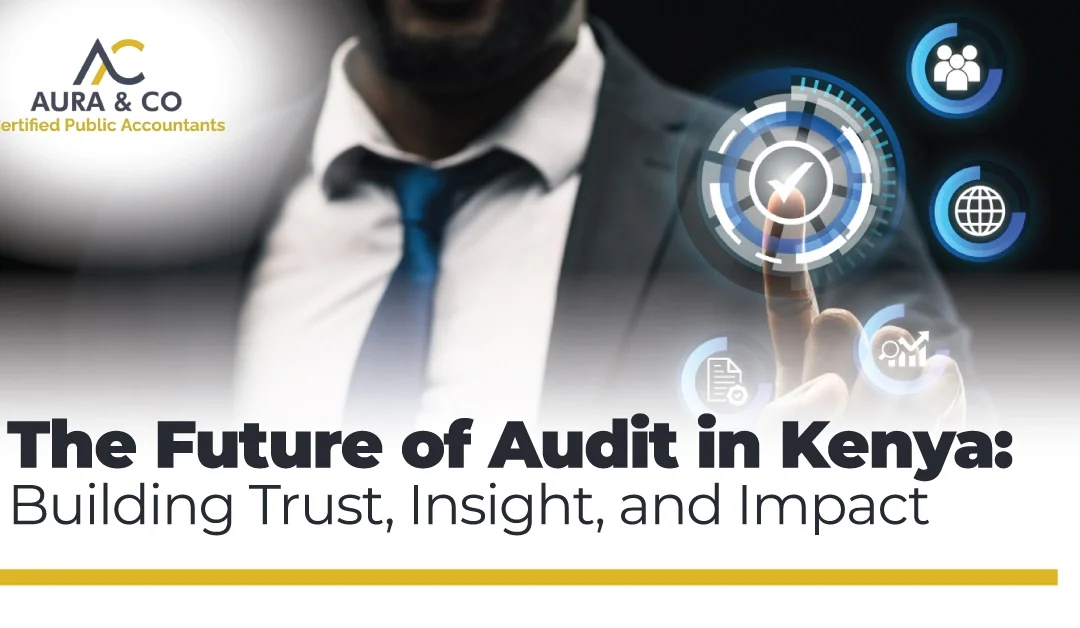The Future of Audit in Kenya: Building Trust, Insight, and Impact
By Paul Wanjala, Audit Senior Aura & Co.
The audit profession in Kenya is undergoing one of its most transformative periods yet. What
was once seen primarily as a statutory compliance exercise is now being redefined as a strategic
pillar of organizational trust, transparency, and sustainable growth.
Having worked across diverse industries from manufacturing to microfinance institutions and
NGOs, I’ve seen firsthand how the role of auditors is expanding beyond verifying numbers.
Today, the most valuable audits are not those that simply “tick the boxes,” but those that provide
insights to help organizations become more resilient, accountable, and forward-looking.
1. From Compliance to Value Creation
For many Kenyan businesses, especially SMEs, audit has traditionally been viewed as an annual
obligation, something to satisfy regulators, donors, or shareholders. But this mindset is changing.
Take for instance an SME in the agribusiness sector that Aura & Co recently audited. Initially,
their focus was only on ensuring financial statements were clean enough to access financing. But
through our audit, we identified deeper inefficiencies in their cost management system, such as
weak inventory controls and lack of oversight over supplier payments. When these gaps were
addressed, their profitability improved significantly, and they were able to make better pricing
decisions.
That’s what modern audit looks like: helping clients turn risks into opportunities and compliance
into competitive advantage.
2. Technology: The Game Changer
Data analytics, process automation, and AI-powered risk assessment tools are improving the
efficiency, accuracy, and depth of audits.
Technology doesn’t replace the auditor’s judgment; it enhances it. The future auditor will not be
spending hours manually reconciling figures but will instead interpret complex datasets to
generate actionable insights for management and boards.
However, this shift requires new skills. Auditors must learn to integrate data visualization,
cybersecurity reviews, and IT control assessments into their audit approach. The firms that invest
in these capabilities today will lead the profession tomorrow.
3. Ethics and Trust: The Unchanging Core
While technology is transforming audit tools, one element remains timeless, trust.
Without independence, objectivity, and integrity, even the most sophisticated audit loses
meaning. Kenya has witnessed corporate collapses that were not caused by lack of financial
reporting, but by compromised ethical standards. Stakeholders expect auditors to be the
guardians of truth, not just compliance agents.
Here at the firm, ethical leadership is at the heart of how we operate. We emphasize professional
skepticism questioning what doesn’t add up and standing firm even when it’s uncomfortable. I
recall one engagement with a healthcare client where our team noted discrepancies in supplier
invoices linked to a related-party vendor. Although management initially downplayed the issue,
our persistence led to a policy overhaul that saved the company millions in the following year.
That’s the kind of value ethics-driven auditing can deliver preventing small integrity cracks from
becoming major organizational failures.
4. The Expanding Scope: Beyond Financial Statements
The future of audit is multidimensional. It’s no longer just about assessing whether accounts
comply with IFRS or IPSAS, it’s about understanding the ecosystem in which businesses
operate.
Areas like ESG reporting, cybersecurity assurance, and data privacy audits are becoming
mainstream. Regulators and investors alike are demanding more transparency on how companies
impact society and manage their digital risks.
Imagine a manufacturing firm with impressive financial performance but poor waste
management and labor practices. In the near future, such a firm might face reputational damage,
investor withdrawal, or penalties from environmental authorities. A forward-looking audit
doesn’t wait for that to happen; it highlights the risks early and guides management toward
sustainable solutions.
Auditors, therefore, must understand not only accounting standards but also sustainability
frameworks, IT systems, and risk management principles. This broader perspective will make
audit an essential tool for long-term business resilience in Kenya.
5. Collaboration and Continuous Learning
The next generation of auditors must also embrace collaboration. No one professional can master
every area IT, ESG, tax, and financial reporting. But through multidisciplinary teamwork,
auditors can deliver more holistic and impactful results.
Continuous learning is equally important. The International Auditing and Assurance Standards
Board (IAASB) continues to release updates like ISA 315 (Revised) and IFRS 18 on presentation
and disclosure, which will affect how auditors interpret and communicate financial results.
Staying informed is not optional it’s a professional duty.
6. What SMEs and Organizations Can Do
For Kenyan businesses, especially SMEs and NGOs, the key is to view audits as opportunities,
not obligations.
Here are a few practical steps:
1. Engage auditors early; involve us before year-end to identify red flags proactively.
2. Embrace data transparency; ensure systems are digitized and records easily accessible.
3. Act on audit recommendations; the real value comes from implementing findings, not just
filing reports.
4. Invest in internal controls; prevention is always cheaper than correction.
Organizations that do this will not only meet compliance requirements but also build investor
confidence, attract funding, and strengthen governance.
Key Takeaways
Audit is evolving; it’s now about insights, not just compliance.
Technology will amplify auditor impact, but ethics remain the foundation.
Future-ready auditors must understand ESG, data analytics, and emerging regulations.
SMEs should use audit findings as a roadmap for growth, not a post-mortem of errors.
Trust, transparency, and accountability will define the profession’s credibility in Kenya.
The audit landscape in Kenya is changing fast. But amidst all the change, one thing remains
certain: audit will continue to be the language of trust.
At Aura & Co, we see ourselves not merely as auditors, but as partners in progress helping
organizations grow responsibly, manage risk wisely, and make informed decisions for a better
tomorrow.

